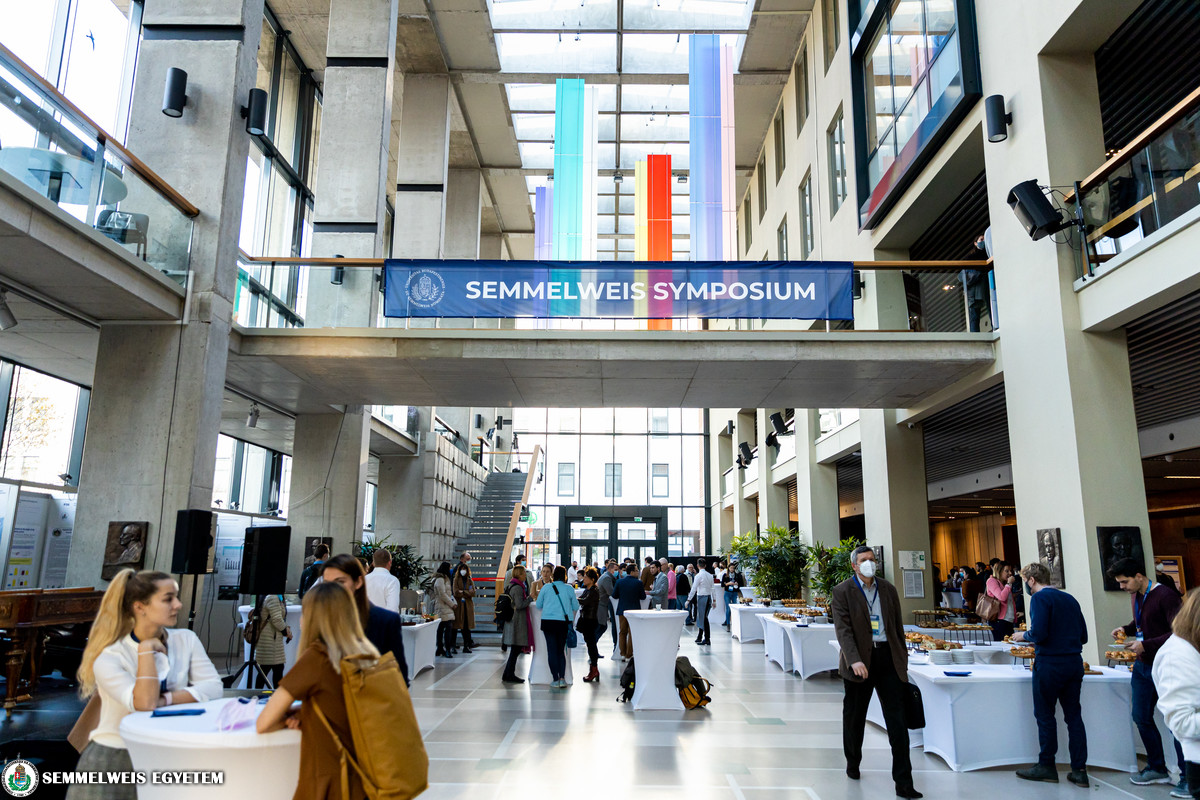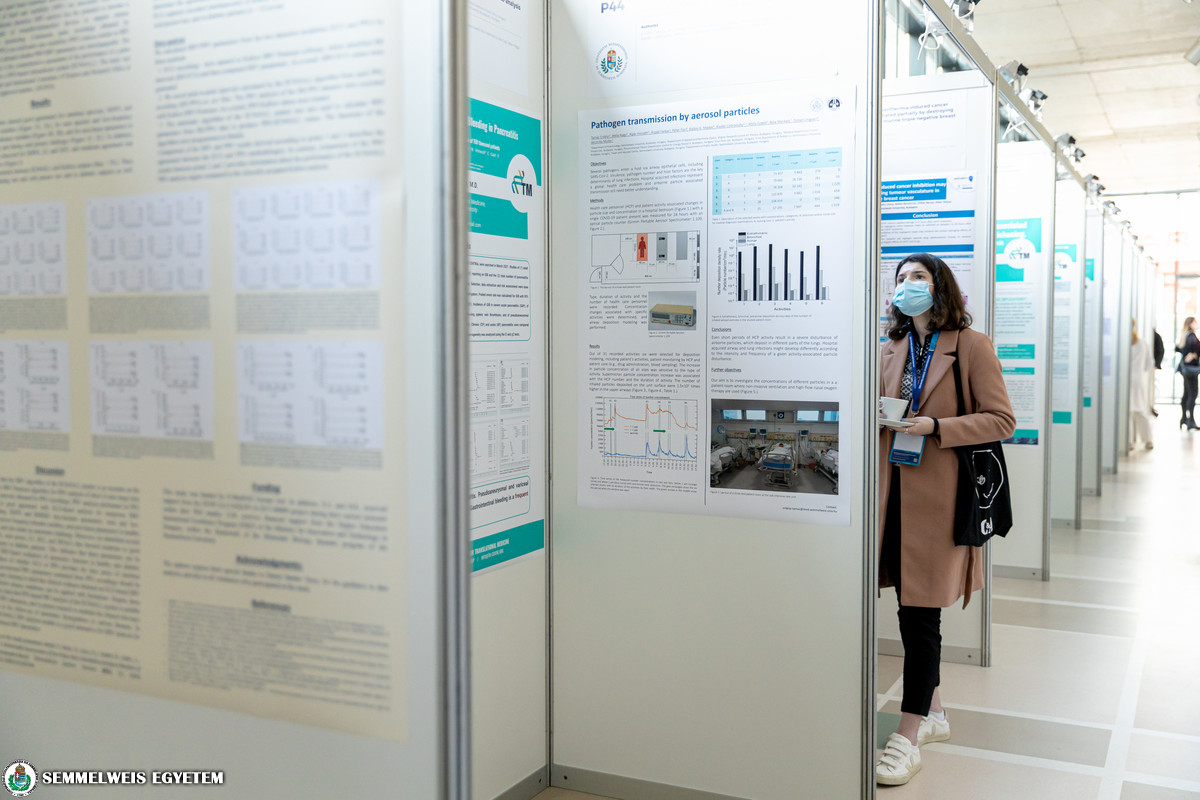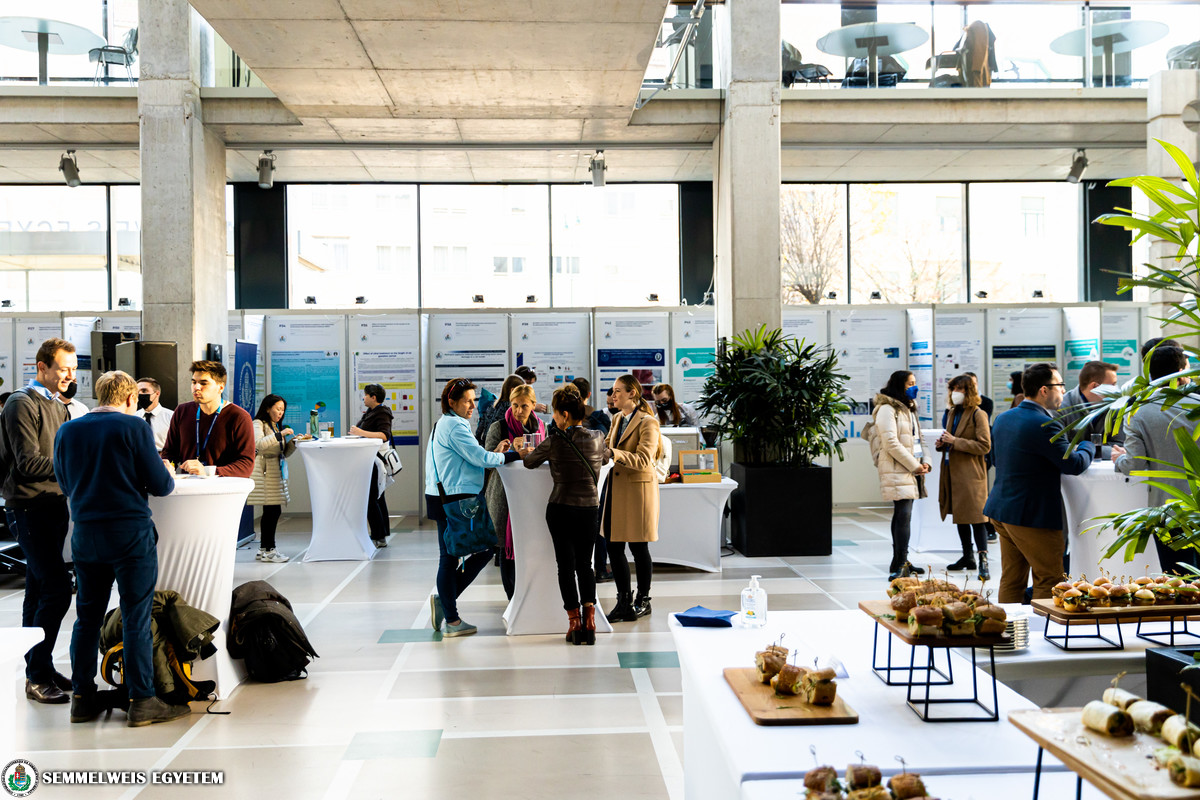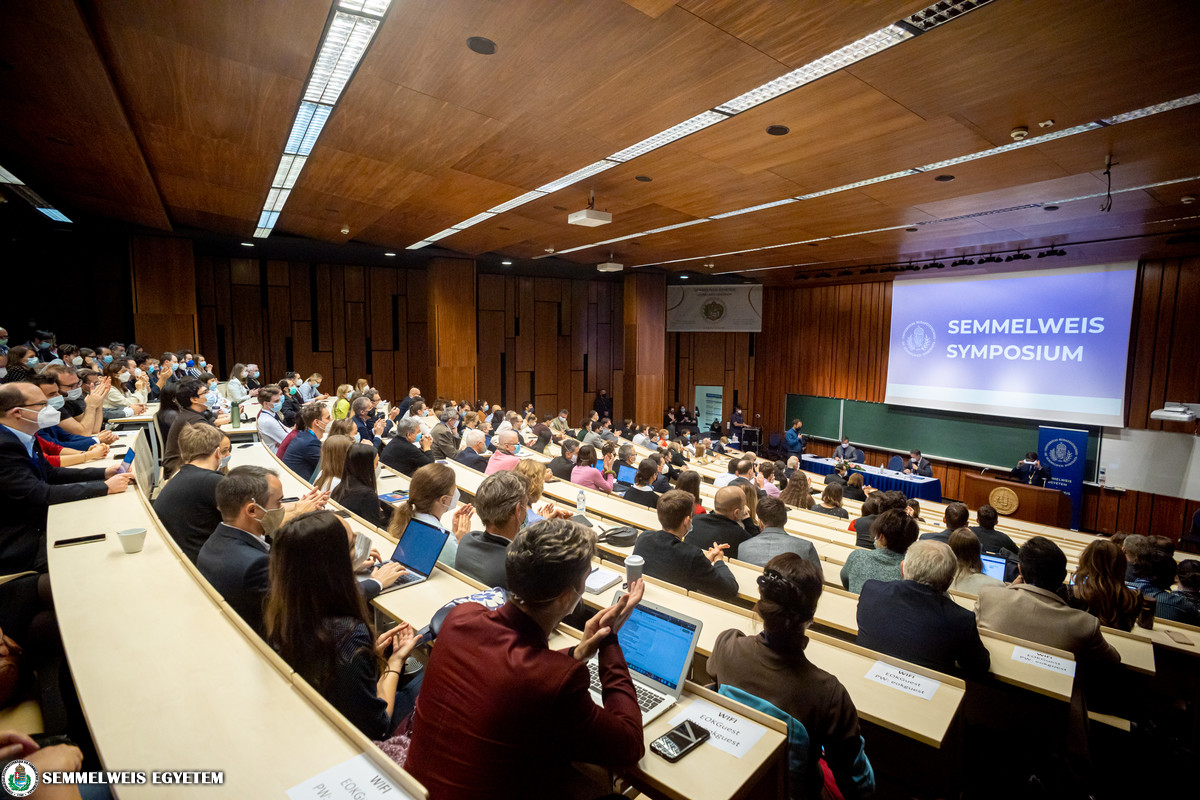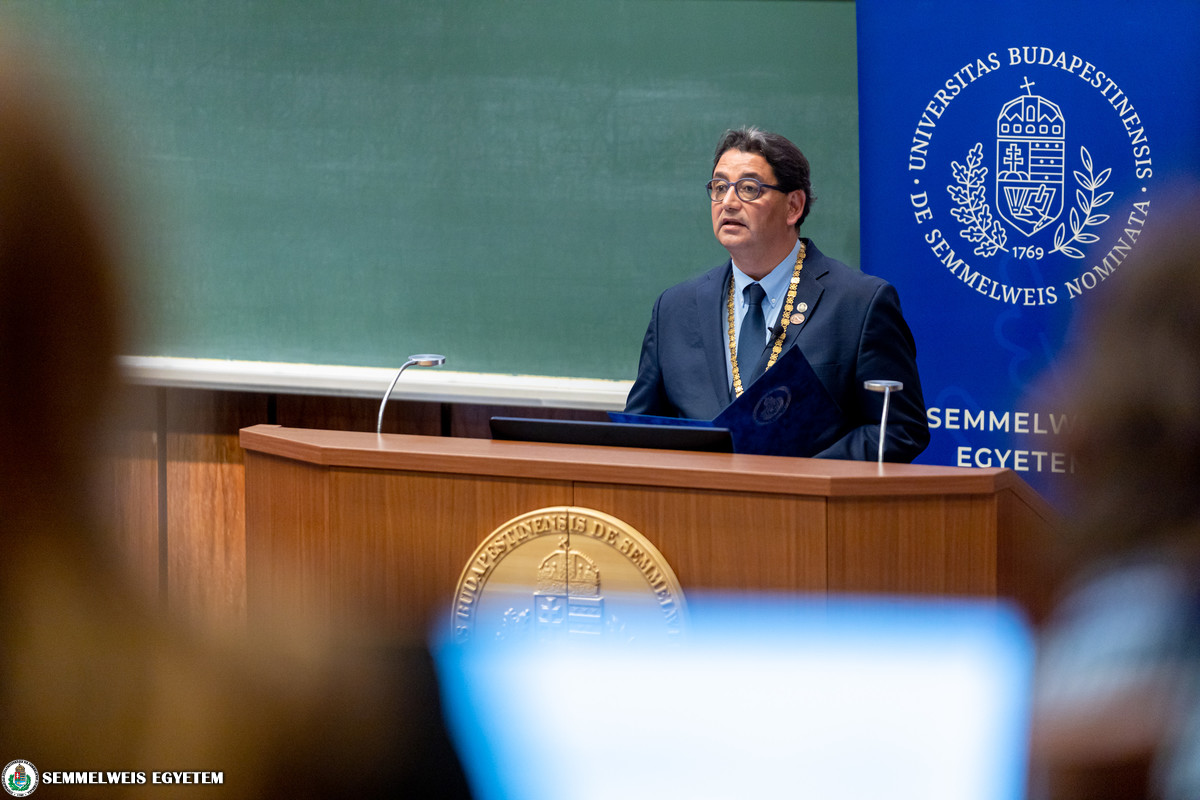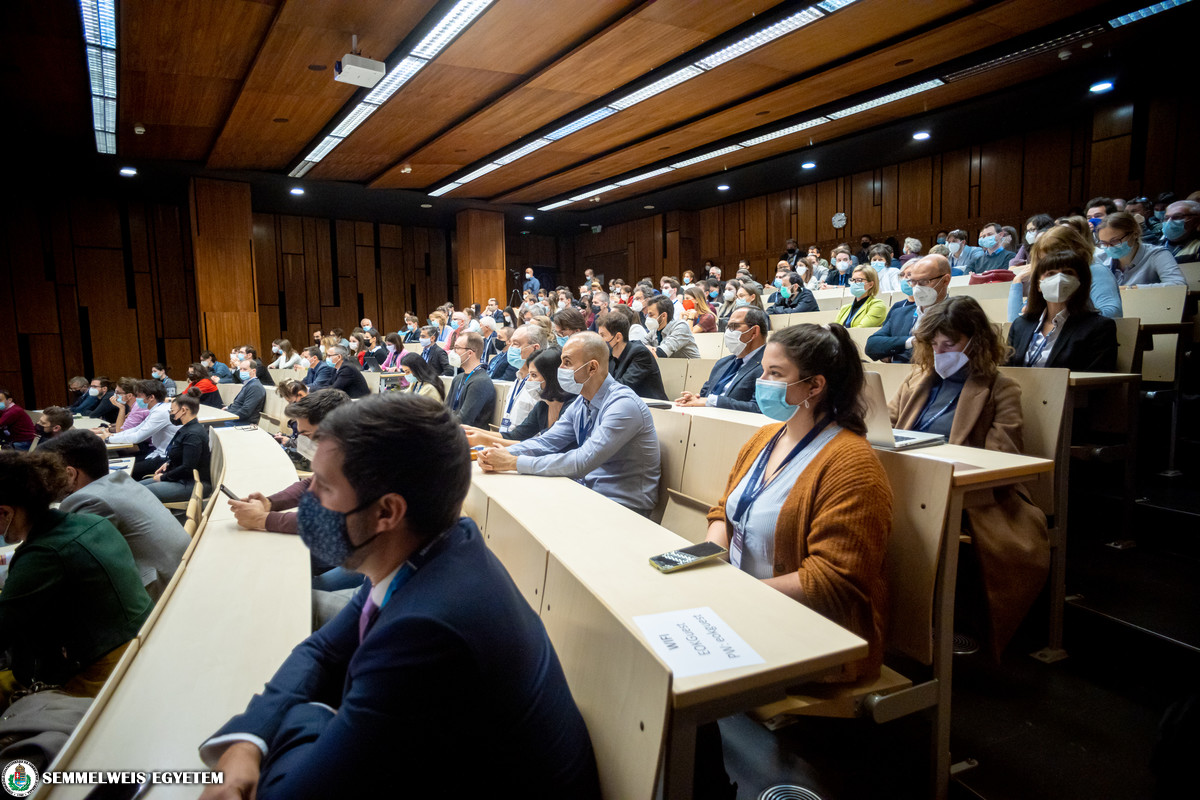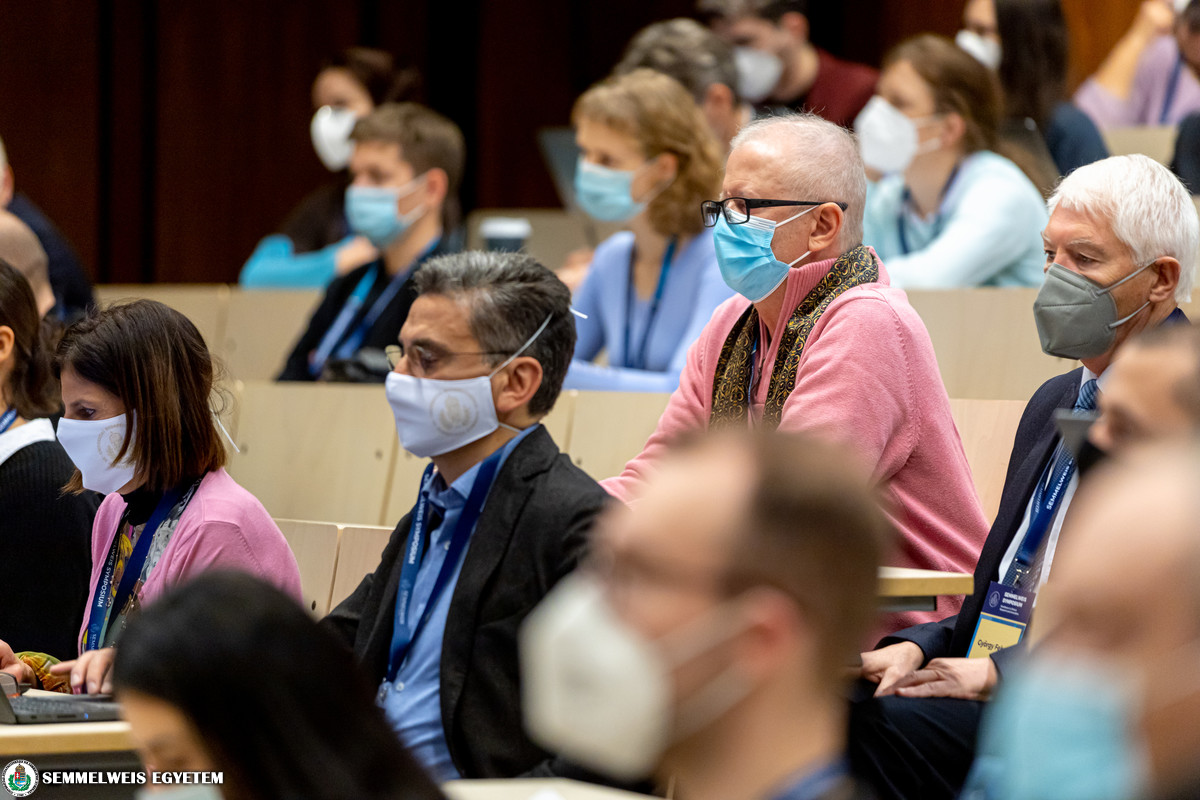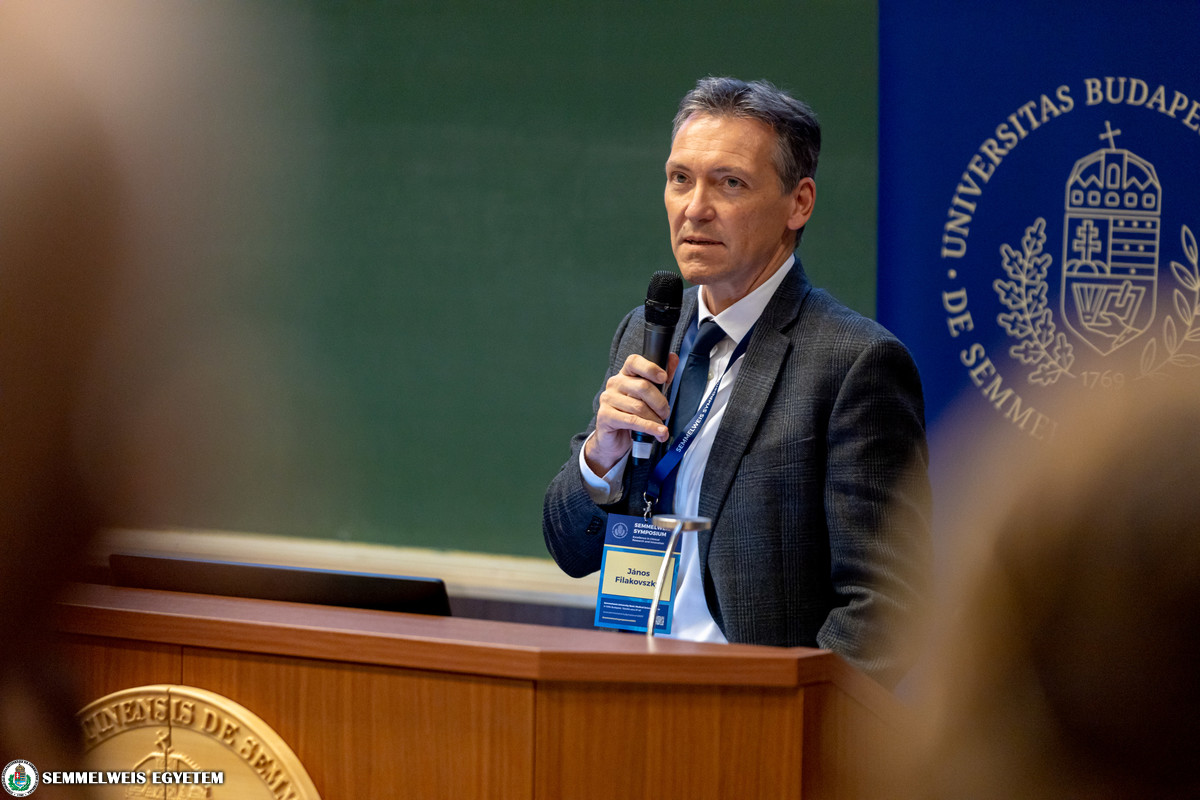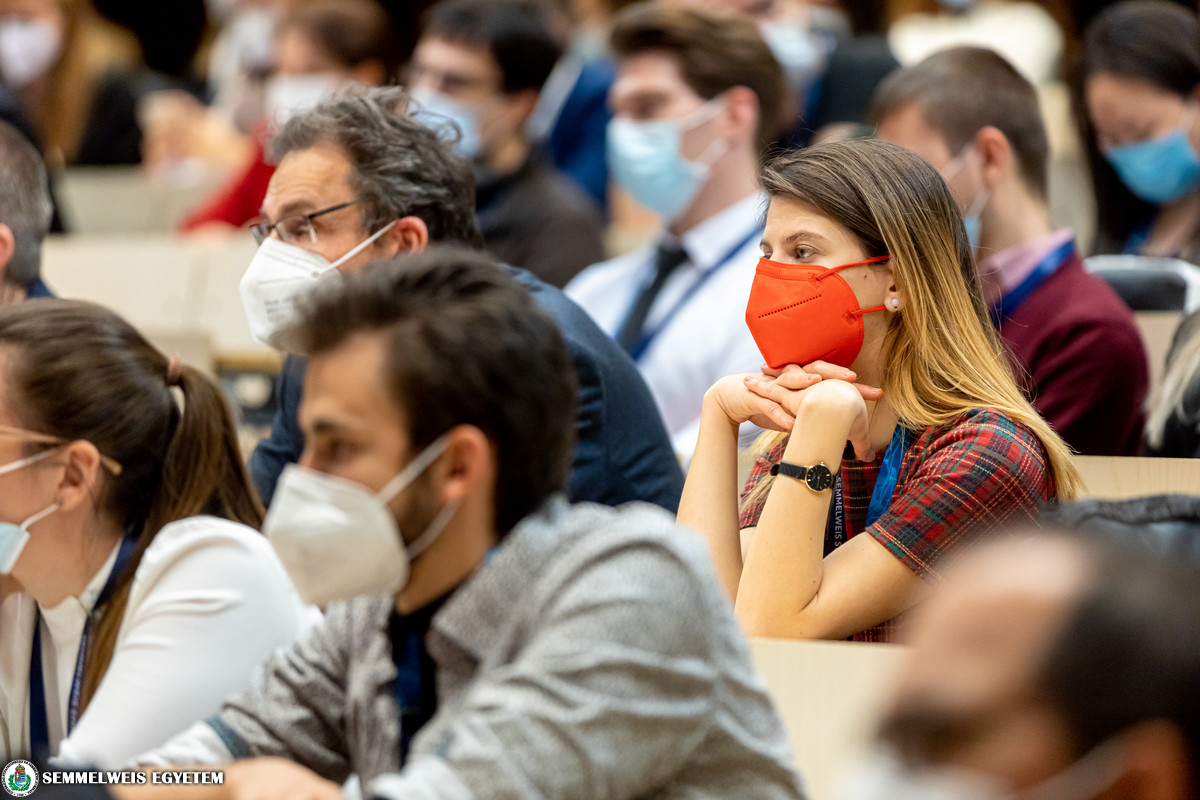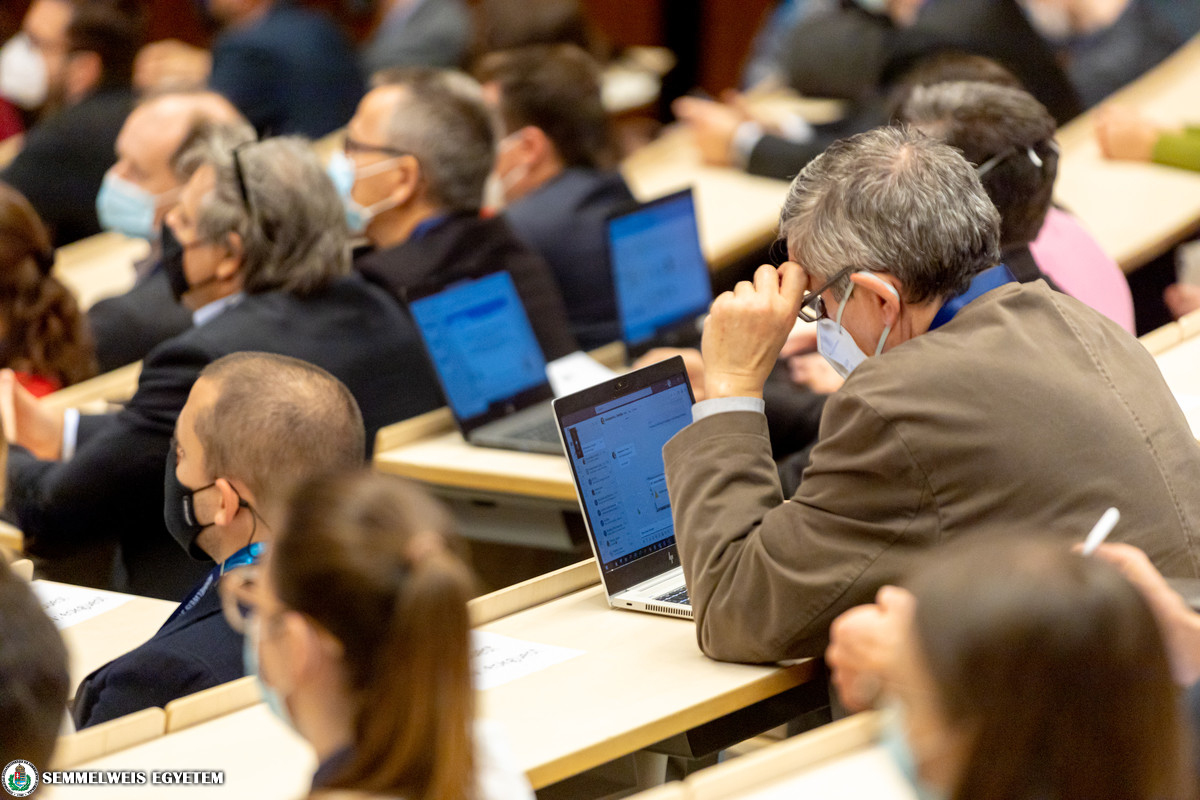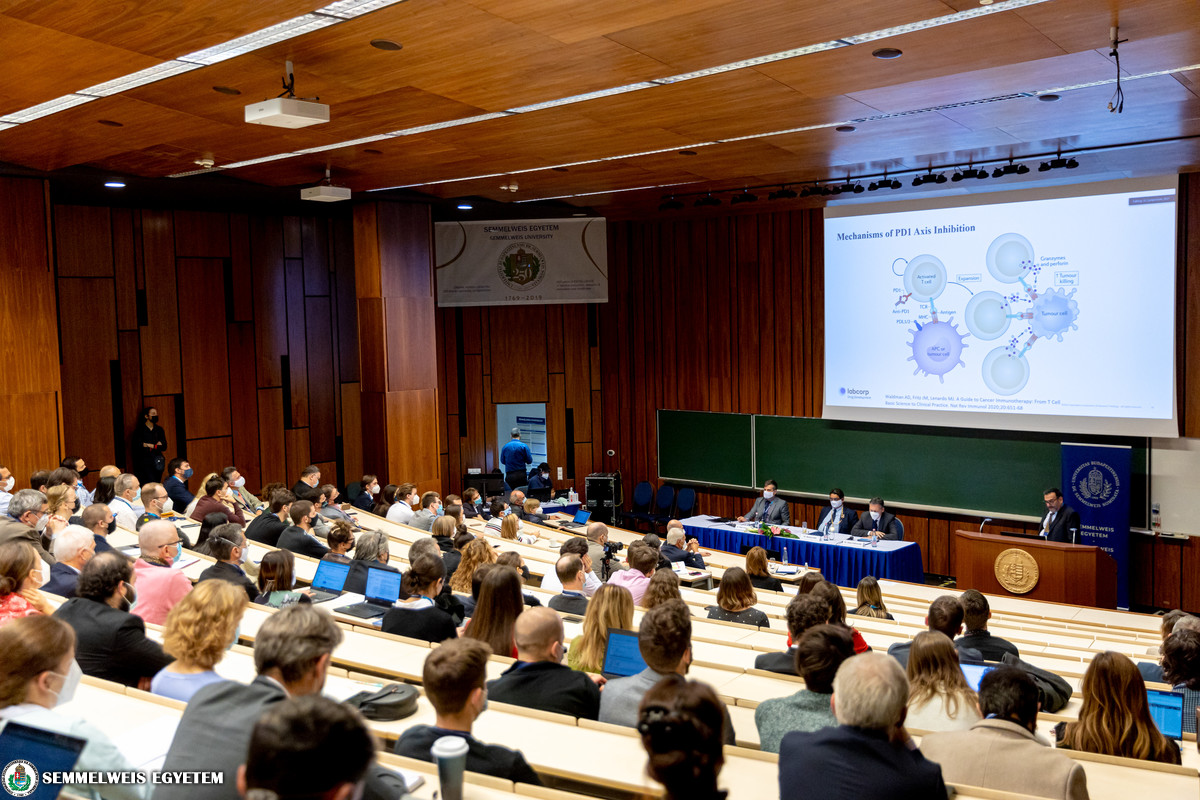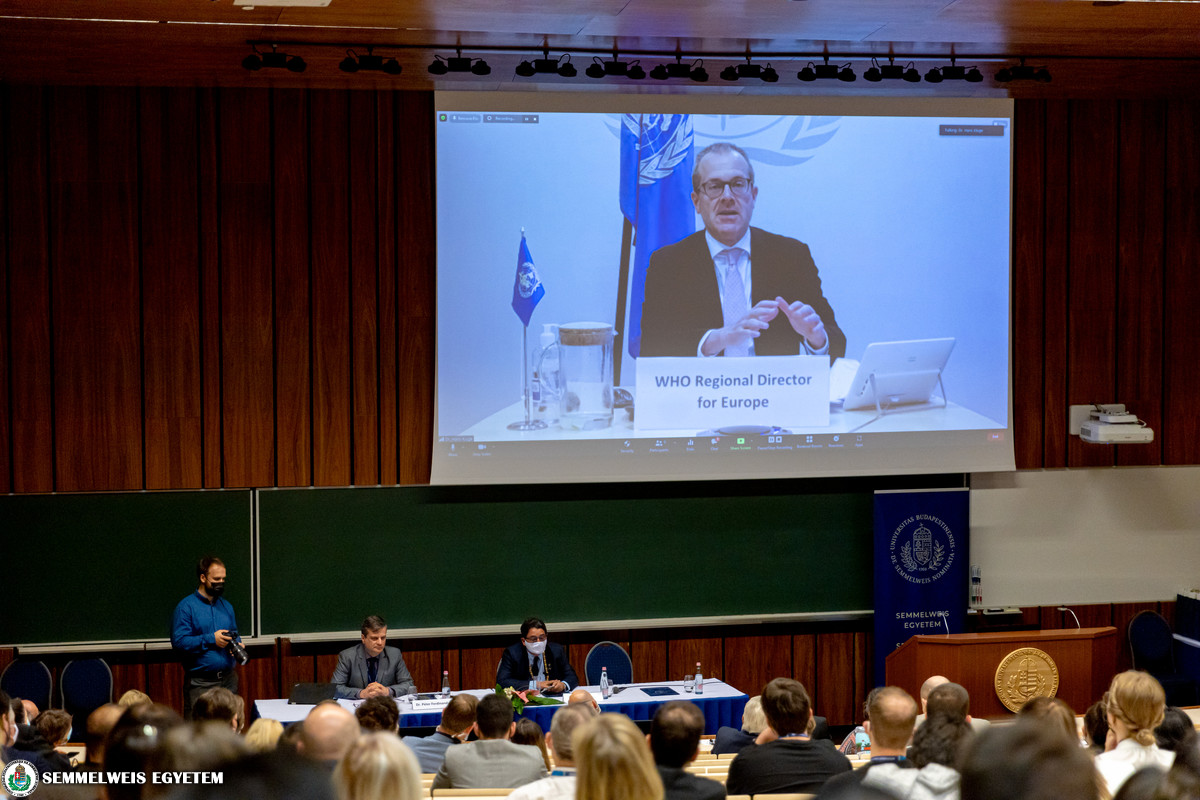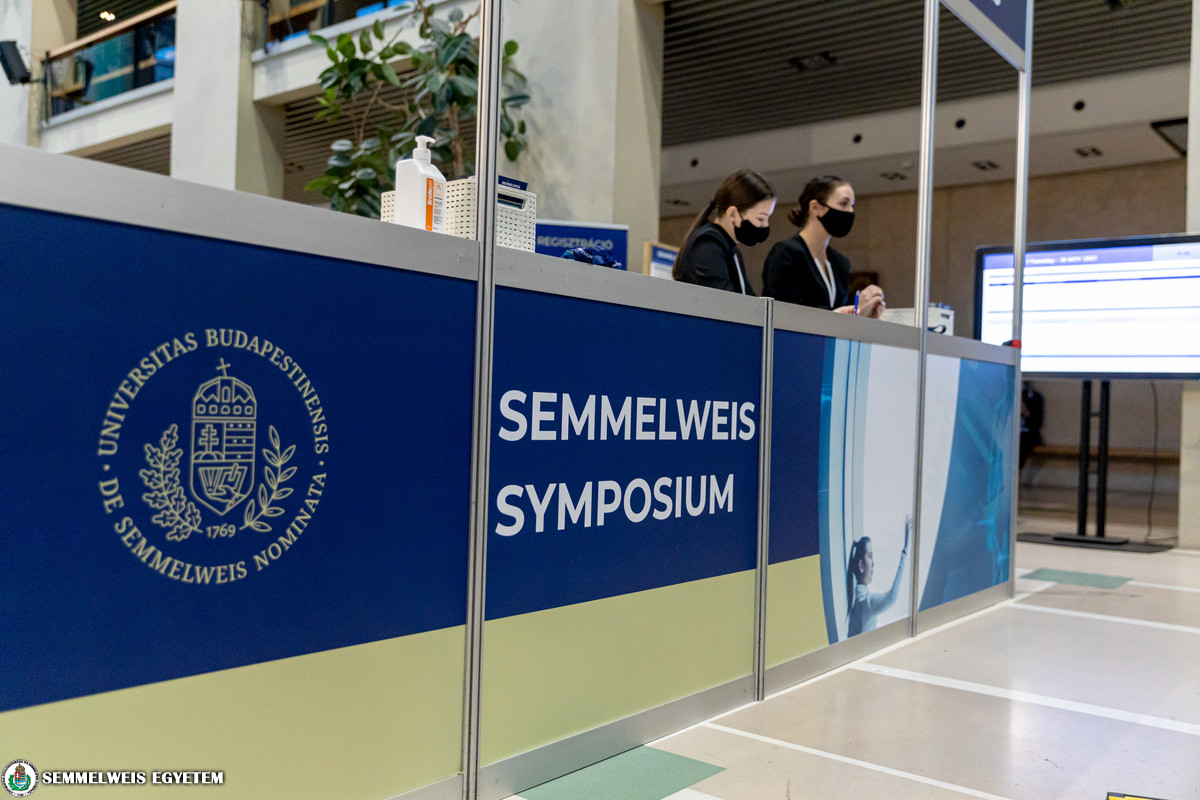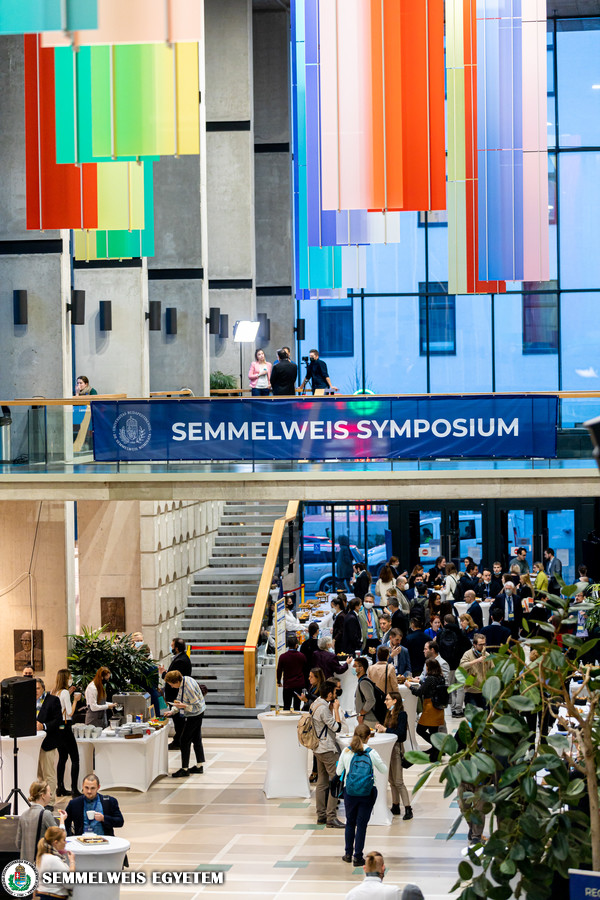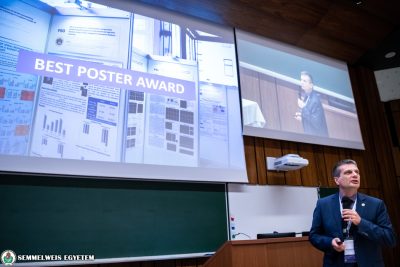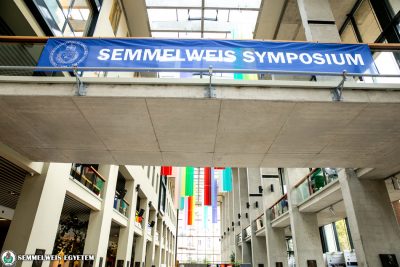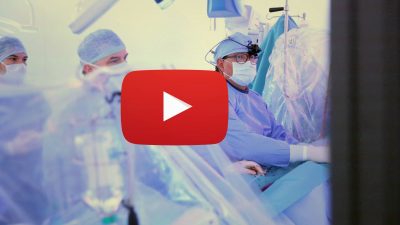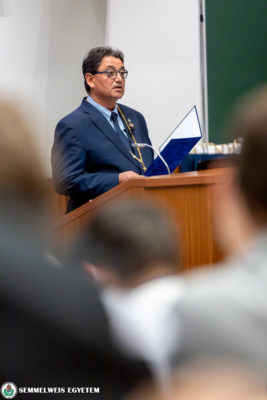 In his opening speech, Rector Dr. Béla Merkely said that the Semmelweis Symposium traditionally focuses on the latest scientific achievements and innovations in the field, and features presentations by the most prominent foreign and national experts in the field. “Everything is in place to ensure that this will be the case at this year’s event as well, whose chosen theme is excellence in clinical research and innovation,” he said, adding that the event is also an excellent platform for international knowledge transfer and networking.
In his opening speech, Rector Dr. Béla Merkely said that the Semmelweis Symposium traditionally focuses on the latest scientific achievements and innovations in the field, and features presentations by the most prominent foreign and national experts in the field. “Everything is in place to ensure that this will be the case at this year’s event as well, whose chosen theme is excellence in clinical research and innovation,” he said, adding that the event is also an excellent platform for international knowledge transfer and networking.
He stressed that clinical trials play a significant role in Semmelweis University’s research performance and are also essential for the development of new therapies, innovations and effective patient care. “This recognition has led us to start renewing and strengthening our system of support for research, development and innovation,” he added. Semmelweis University already has a large number of clinical trials in progress, but there is potential to increase them and this is the university’s goal.
We want to be Hungary’s largest R&D partner in the health and pharmaceutical industry
– said Dr. Béla Merkely. He stressed that scientific output has a major impact on rankings in higher education and Semmelweis University is making rapid progress towards becoming one of the world’s top 100 higher education institutions and one of Europe’s top 5 medical universities. “Recent results confirm that the development of our institution is on the right track towards this ambitious goal, thanks to the outstanding performance of our citizens,” he said, pointing out that this year the university moved 149 places up to 277th in the Times Higher Education ranking, which means that it is in the top 1% of the world’s best higher education institutions.
Dr. Béla Merkely noted that in the next 3 days, more than 50 presentations will be given around 6 major themes, and reflecting on the current situation, the COVID-19 pandemic will be presented in several sessions. “In addition to being the leading provider of COVID care in the country and the superhuman commitment of our colleagues in patient care, our university has also made a significant contribution to research on the coronavirus, which will be presented in several lectures,” the rector said. Finally, he expressed his pleasure that, in addition to the Hungarian participants, some 20 eminent foreign experts from many European countries will also be giving lectures at the Semmelweis Symposium.
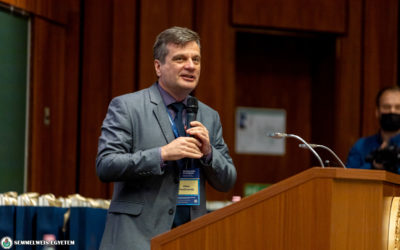 Dr. Péter Ferdinandy, Vice-Rector for Science and Innovation, who is the main organizer of this year’s event together with Rector Dr. Béla Merkely, presented the planned changes in the research, development and innovation (RDI) strategy of Semmelweis University. He explained that a new RDI support system was needed to help the university achieve its strategic objectives, including increasing the number of clinical trials, scientific publications, PhD students and the more efficient use of available funding. Four areas of activity have been identified: non-clinical research, animal research, investigator-initiated and sponsored clinical research, for which the new system will provide centralized support, the vice-rector pointed out.
Dr. Péter Ferdinandy, Vice-Rector for Science and Innovation, who is the main organizer of this year’s event together with Rector Dr. Béla Merkely, presented the planned changes in the research, development and innovation (RDI) strategy of Semmelweis University. He explained that a new RDI support system was needed to help the university achieve its strategic objectives, including increasing the number of clinical trials, scientific publications, PhD students and the more efficient use of available funding. Four areas of activity have been identified: non-clinical research, animal research, investigator-initiated and sponsored clinical research, for which the new system will provide centralized support, the vice-rector pointed out.
He highlighted the Science Park investment as a flagship project of RDI activity, which aims to become a key player in the health industry of the entire region, fostering the creation of around 100 university spinoff companies by 2030 and increasing the university’s revenue from industry. The Science Park plans to focus on 4 “bio” areas: bionics, digital biomarkers, translational biotechnology, and bioimaging. “So we are not only renewing the management system for scientific activities, but we are also building a new infrastructure, which will be the Science Park,” said Dr. Péter Ferdinandy.
The keynote lectures of the opening day were delivered by Dr. Oren Cohen, professor at Duke University and Head of Phase I Studies at Labcorp, a clinical research organization, and Dr. Hans Kluge, Regional Director for Europe of the World Health Organization (WHO).
The English-language, 3-day Semmelweis Symposium will take place from 16-18 November at the Basic Medical Science Center. The focus of the event will be on clinical research and translational medicine, with the aim of bringing discoveries to the bedside as soon as possible. Cardiology, surgery and pediatrics are represented in separate blocks – areas where clinical and translational research and innovation are particularly strong at Semmelweis University. The event will also provide an opportunity to expand international collaborations and to network with industrial partners.
Tamás Deme
Photo: Attila Kovács – Semmelweis University
